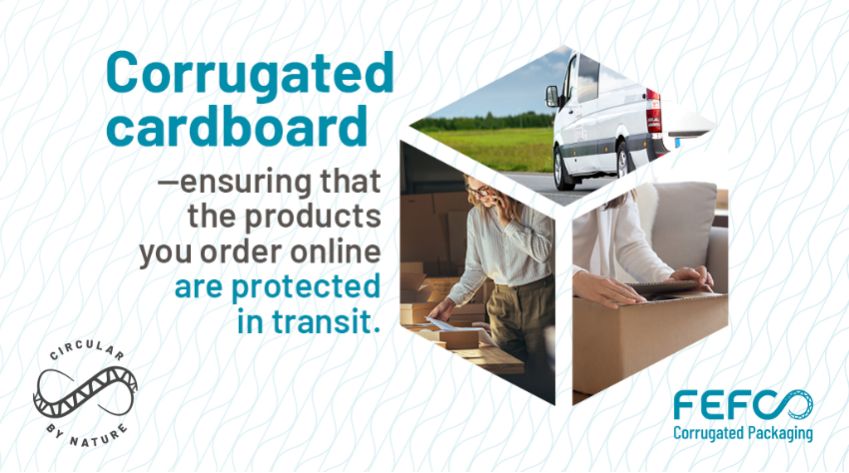Everyone wants to live well in a nice environment, with less packaging and a clean ocean. Next time you pass by piles of packing boxes, pizza boxes and other corrugated cardboard packaging lining the street, remember this: all of it is recycled. 90% of all corrugated cardboard in Europe is pulped down and used again. Corrugated cardboard fibres can be recycled over 25 times with no significant loss in quality. Corrugated cardboard – of the kind used to pack e-commerce deliveries for example – is made primarily from recovered fibre which is recycled, based on a renewable resource and biodegradable.
We are also a surprisingly “local” business. Corrugated cardboard travels less far than people think, so there are hundreds of small factories located in the heart of local communities, not one or two giants supplying the whole continent. We employ 100,000 people directly and create a further 270,000 jobs indirectly.
The economic benefits are considerable: we generate around €25 billion a year in sales across Europe, much of it ploughed back into our communities through tax, investment, research and innovation. In a nutshell: Europe’s corrugated cardboard industry does a vast amount of social and economic good while working hard to protect the planet.
We want to push the bar higher on recycling, so we support the EU’s Packaging and Packaging Waste Regulation (PPWR) currently going through ordinary procedure and under immense scrutiny in the European Parliament. Everyone wants to see litter removed, wasteful packaging reduced and carbon emissions cut back.
The challenge facing MEPs and others is to prevent PPWR from making improvements in one area that create bigger headaches elsewhere. Like a giant game of “whack-a-mole”, the EU risks favouring one packaging material and penalising another in the process; or imposing restrictions that trigger an increase in transport emissions, fuel consumption, water use and increased environmental impact.
If the PPWR forces us to meet arbitrary re-use targets, this could kill our business. Yet the current draft favours re-use over recycling, despite the EU’s own Circular Economy Action Plan calling for packaging to be “reusable or recyclable in an economically viable way by 2030”. You cannot re-use corrugated cardboard like other materials (plastic, glass, metal). There are some cases, where corrugated cardboard can be reused but not necessarily for the same purpose and is difficult to monitor. One example is reuse by the consumers of e-commerce boxes to ship personal parcels or to collect waste paper for recycling.

Corrugated cardboard’s malleable qualities are precisely those that makes it so good for recycling and packaging fit for purpose. So if corrugated cardboard is penalised, plastic will skyrocket, with even more of it ending up in our parks, on our beaches and in our oceans. The first UN anti-plastic conference which took place last week is a sign that reducing plastic worldwide is becoming part of the UN's agenda, and the EU should not fall behind in that effort.
We need recycling and re-use to be treated equally if a truly circular economy is to be achieved. Corrugated cardboard also plays a huge role in preventing fragile goods from being damaged in transit, so reuse targets should be evaluated to ensure they do not increase the environmental impact or food waste. Finally, prevention targets and excessive packaging limits should be meaningful and achievable without damaging competitiveness, and should help us preserve the social and economic value we bring to local communities.
In partnership with
.png)
This article was product in partnership with FEFCO. FEFCO is the European Federation of Corrugated Board Manufacturers.
Sign up to The Parliament's weekly newsletter
Every Friday our editorial team goes behind the headlines to offer insight and analysis on the key stories driving the EU agenda. Subscribe for free here.